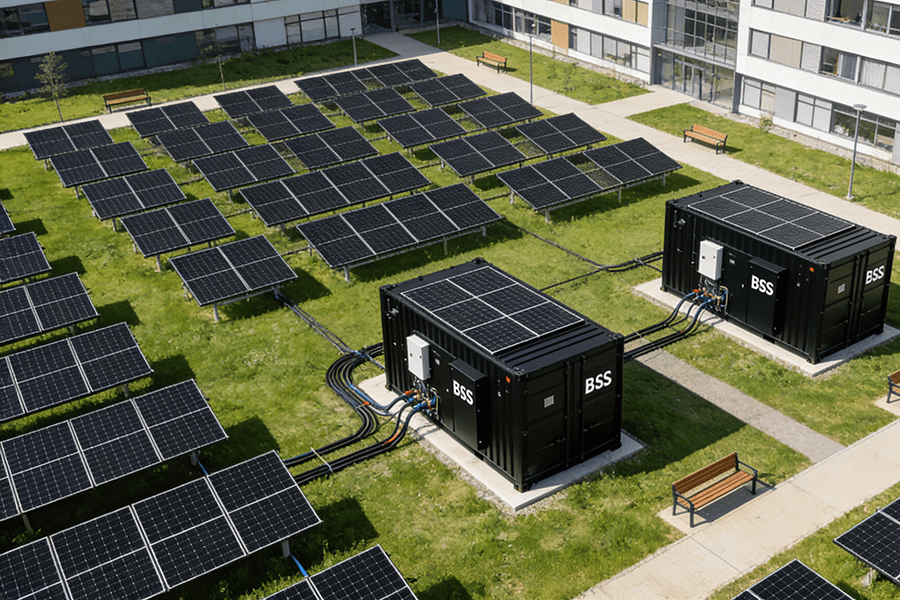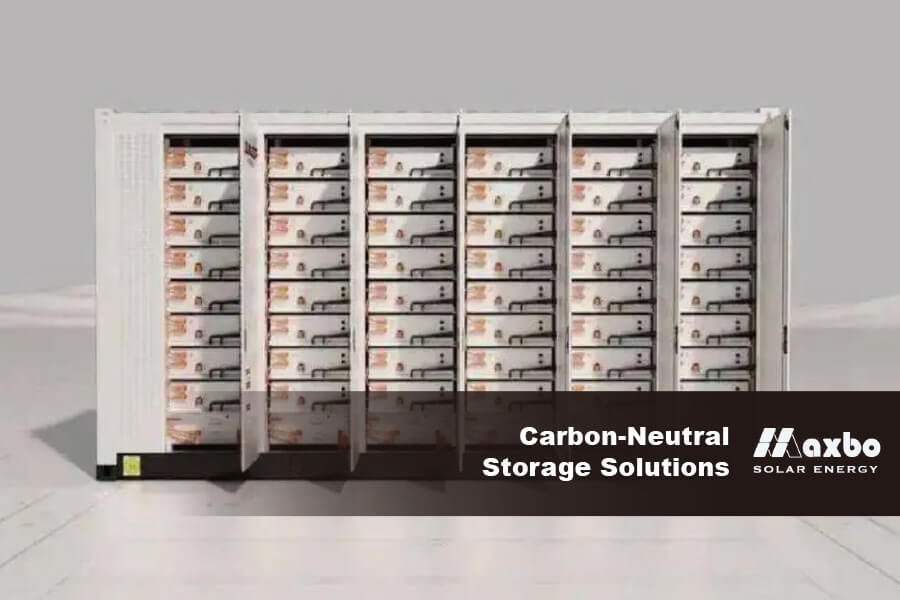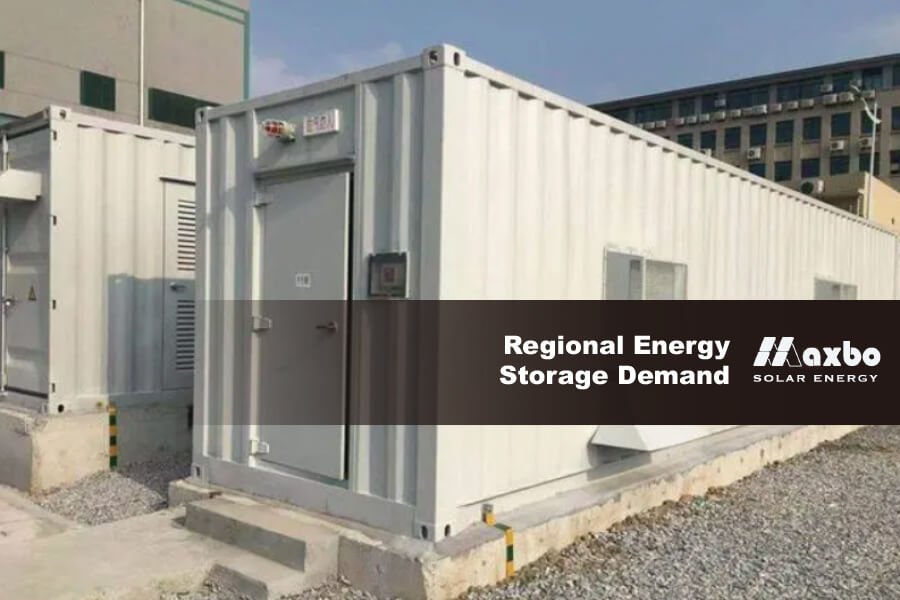In today’s evolving energy landscape, solar panel kits are revolutionizing how homeowners approach energy consumption. As technology advances and costs decrease, solar panel kits are becoming a practical and affordable option for generating clean energy. This comprehensive guide will explore everything you need to know about solar panel kits, including their components, applications, and selection criteria. Learn how Maxbo Solar can help you harness the power of the sun for a more sustainable future.
Table of Contents
Toggle1. Understanding the Components of Solar Panel Kits
Key Components:
- Solar Panels: These are the primary devices that capture sunlight and convert it into electricity. High-efficiency panels offer more power in a smaller space.
- Inverters: Essential for converting the DC electricity generated by the solar panels into AC electricity, which is used in your home.
- Mounting Hardware: Includes brackets, rails, and other fixtures needed to securely attach the solar panels to your roof or ground.
- Wiring and Connectors: These ensure that the electrical connections between the panels, inverter, and other components are safe and efficient.
- Optional Accessories: Some kits may include battery storage systems, charge controllers, and monitoring equipment for enhanced functionality and performance.
Advantages of Choosing Solar Panel Kits:
- Simplified Installation: Kits typically come with all necessary components and instructions, making the installation process more straightforward.
- Cost Efficiency: Bundling components can often reduce costs compared to purchasing items individually.
- Support and Guidance: Many kits include detailed manuals and customer support to assist with setup and troubleshooting.
Maxbo Solar offers a diverse range of solar panel kits designed to meet various needs and preferences, ensuring high-quality components and reliable performance.
Reference:
- Renewable Energy World. (2022). “Solar Panel Kits: Comprehensive Overview and Applications.” Retrieved from Renewable Energy World
2. Exploring the Types of Solar Panel Kits
Basic Solar Panel Kits:
- Features: These kits generally include a few solar panels, a basic inverter, and essential mounting hardware. They are ideal for small-scale applications.
- Best For: Homeowners who want a modest solar setup or wish to augment their existing energy system without a significant investment.
Advanced Solar Panel Kits:
- Features: Advanced kits come with additional panels, higher-capacity inverters, and sometimes battery storage. They offer greater energy production and efficiency.
- Best For: Larger households or those seeking a more comprehensive solar solution with enhanced performance and reliability.
Hybrid Solar Panel Kits:
- Features: Hybrid kits combine solar panels with battery storage and advanced inverters, making them suitable for both grid-tied and off-grid systems.
- Best For: Users who need flexibility, backup power options, and optimal energy management.
Maxbo Solar provides a wide selection of solar panel kits, including basic, advanced, and hybrid models, to cater to different energy needs and preferences.
Reference:
- Journal of Solar Energy Engineering. (2023). “Comparison of Solar Panel Kits: Basic, Advanced, and Hybrid.” Retrieved from ASME Digital Collection
3. Selecting the Ideal Solar Panel Kit for Your Home
Key Factors to Consider:
- Energy Needs: Determine the total energy consumption of your household to choose a system size that meets your requirements.
- Installation Space: Assess the available space on your roof or ground to ensure it is adequate for the solar panels.
- Budget: Consider the total cost of the kit, including installation and any additional maintenance expenses.
- Local Regulations: Verify compliance with local codes and regulations to ensure a smooth installation process.
Steps for Selecting a Kit:
- Evaluate Energy Usage: Use an energy calculator to estimate your household’s power needs.
- Measure Installation Area: Ensure that your roof or ground space can accommodate the size of the solar panel system.
- Compare Available Kits: Review different kits based on specifications, features, and costs to find the best match for your needs.
- Consult with Experts: Seek advice from professionals to get tailored recommendations and ensure optimal system performance.
Maxbo Solar’s expert team is available to help you select the most suitable solar panel kit based on your specific needs and preferences.
Reference:
- Energy Reports. (2023). “Selecting the Right Solar Panel Kit: A Comprehensive Guide.” Retrieved from Elsevier
4. Applications of Solar Panel Kits
Residential Applications:
- Purpose: Reduce electricity bills and contribute to a sustainable lifestyle.
- Features: Kits designed for homes typically include standard panels and inverters suited for residential energy needs.
Commercial Applications:
- Purpose: Meet the higher energy demands of businesses and large properties, improving operational efficiency.
- Features: Larger systems with advanced monitoring and maintenance capabilities.
Off-Grid Applications:
- Purpose: Provide energy in remote locations without access to the electrical grid, often including battery storage systems.
- Features: High-capacity batteries and durable panels designed to withstand diverse environmental conditions.
Maxbo Solar offers customized solar panel kits for various applications, including residential, commercial, and off-grid systems, ensuring each solution is optimized for its specific use case.
Reference:
- Journal of Renewable Energy. (2022). “Applications of Solar Panel Kits in Various Settings.” Retrieved from MDPI
5. Step-by-Step Guide to Installing Your Solar Panel Kit
Preparation:
- Site Evaluation: Check the installation site for suitability, including roof strength and orientation.
- Permits and Regulations: Obtain necessary permits and ensure that the installation adheres to local regulations.
Installation Steps:
- Mounting System: Install the mounting hardware on the chosen surface.
- Panel Installation: Attach the solar panels to the mounting system securely.
- Wiring and Connections: Connect the panels to the inverter and other system components.
- Inverter Setup: Install the inverter and configure it to convert DC to AC power.
- System Testing: Perform final checks and tests to ensure the system operates correctly.
Maxbo Solar provides detailed installation guides and professional support to ensure a smooth and effective setup of your solar panel kit.
Reference:
- Solar Energy. (2023). “Installation Procedures for Solar Panel Kits.” Retrieved from ScienceDirect
6. Maintaining and Troubleshooting Your Solar Panel Kit
Routine Maintenance:
- Cleaning Panels: Regularly clean the solar panels to maintain optimal efficiency and performance.
- Inspection: Periodically inspect the system for any signs of wear, damage, or malfunction.
Troubleshooting Tips:
- Performance Issues: Address any reductions in power output by checking connections, panel alignment, and overall system integrity.
- System Alerts: Monitor and respond to any alerts or notifications from the inverter or other components.
Maxbo Solar offers ongoing maintenance and support services to ensure that your solar panel kit remains in peak condition throughout its operational life.
Reference:
- Energy Storage Systems. (2022). “Maintenance and Troubleshooting for Solar Energy Systems.” Retrieved from Elsevier
7. Cost Considerations and Financial Benefits
Cost Elements:
- Initial Investment: Includes the price of the solar panel kit and installation expenses.
- Maintenance Costs: Consider any ongoing costs for system upkeep and repairs.
Financial Benefits:
- Savings on Energy Bills: Solar panel kits can significantly reduce your electricity costs.
- Incentives and Rebates: Take advantage of tax credits and rebates to lower your upfront investment.
- Increased Property Value: Solar installations can enhance the value of your property.
Maxbo Solar provides competitively priced solar panel kits and assistance with financial incentives to help you maximize the value of your investment.
Reference:
- BloombergNEF. (2023). “Cost Analysis and Financial Benefits of Solar Panel Kits.” Retrieved from BloombergNEF
Conclusion
Solar panel kits represent a practical and effective solution for homeowners seeking to embrace renewable energy. By understanding the components, types, and installation processes, you can make an informed decision that meets your energy needs and budget.
Maxbo Solar is dedicated to offering high-quality solar panel kits and exceptional support to help you transition to a more sustainable and energy-efficient home. Explore our range of solar solutions and contact us today to discover how we can assist you in achieving your energy goals.
For more information on our solar panel kits and services, visit Maxbo Solar.
References:
- Renewable Energy World. (2022). “Solar Panel Kits: Comprehensive Overview and Applications.” Retrieved from Renewable Energy World
- Solar Energy Materials and Solar Cells. (2022). “Components and Integration in Solar Panel Kits.” Retrieved from ScienceDirect
- Journal of Solar Energy Engineering. (2023). “Comparison of Solar Panel Kits: Basic, Advanced, and Hybrid.” Retrieved from ASME Digital Collection
- Energy Reports. (2023). “Selecting the Right Solar Panel Kit: A Comprehensive Guide.” Retrieved from Elsevier
- Journal of Renewable Energy. (2022). “Applications of Solar Panel Kits in Various Settings.” Retrieved from MDPI
- Solar Energy. (2023). “Installation Procedures for Solar Panel Kits.” Retrieved from ScienceDirect
- Energy Storage Systems. (2022). “Maintenance and Troubleshooting for Solar Energy Systems.” Retrieved from Elsevier
- BloombergNEF. (2023). “Cost Analysis and Financial Benefits of Solar Panel Kits.” Retrieved from BloombergNEF
Feel free to use this structure and content to create an engaging, informative article about solar panel kits.
Related Solutions
Related Blogs
European Campus Microgrid BESS Container: Powering Green Campuses, Slashing Costs & Fueling Student Innovation
行政2025-12-18T16:10:34+08:00December 17th, 2025|Categories: Design, News|
EU Mining Decarbonization BESS Container: Slash Diesel Bills, Crush Emissions, Hit 2040 Net-Zero
行政2025-12-18T16:10:15+08:00December 17th, 2025|Categories: Design, News|
Let’s Make Things Happen
Add notice about your Privacy Policy here.
Let’s Make Things Happen
”The Maxbo team of sales consultants will continue to enrich our own expertise and experience to empower the development of sustainable energy with rigor.“
Maxbo CEO
You will need to provide: 1. the amount of electricity used. 2. the type and power of the load. 3. the electricity consumption habits (daytime/nighttime consumption). 4. the need to store electricity. 5. the need to feed electricity to the mains. 6. drawings or address of the installation site. 7. other special requirements
We can provide you with a quotation, a specification for all products, a circuit connection diagram and a diagram of the installation and placement of the PV panels. Any other requirements and adjustments needed can be discussed with our team.
We can meet the needs of most scenarios, whether your application is for domestic, commercial and industrial use, in remote areas, or for grid-level energy storage, we have experienced colleagues to design and deliver the right solution.
Add notice about your Privacy Policy here.
How much solar power do I need?
Most homes need 5–12kW, depending on your energy use and location.
Off-grid vs. grid-tied — what’s the difference?
Off-grid works without the utility grid; grid-tied lets you sell extra power back.
Do I need permits?
Usually yes — check local rules or ask us for guidance.
How long does a battery last?
Depends on size and load. A 5kWh battery can power a fridge for about 40 hours.
Can I upgrade my system later?
Yes, our systems are modular and easy to expand.
Does Maxbo offer installation?
We ship globally and connect customers with trusted local installers.






